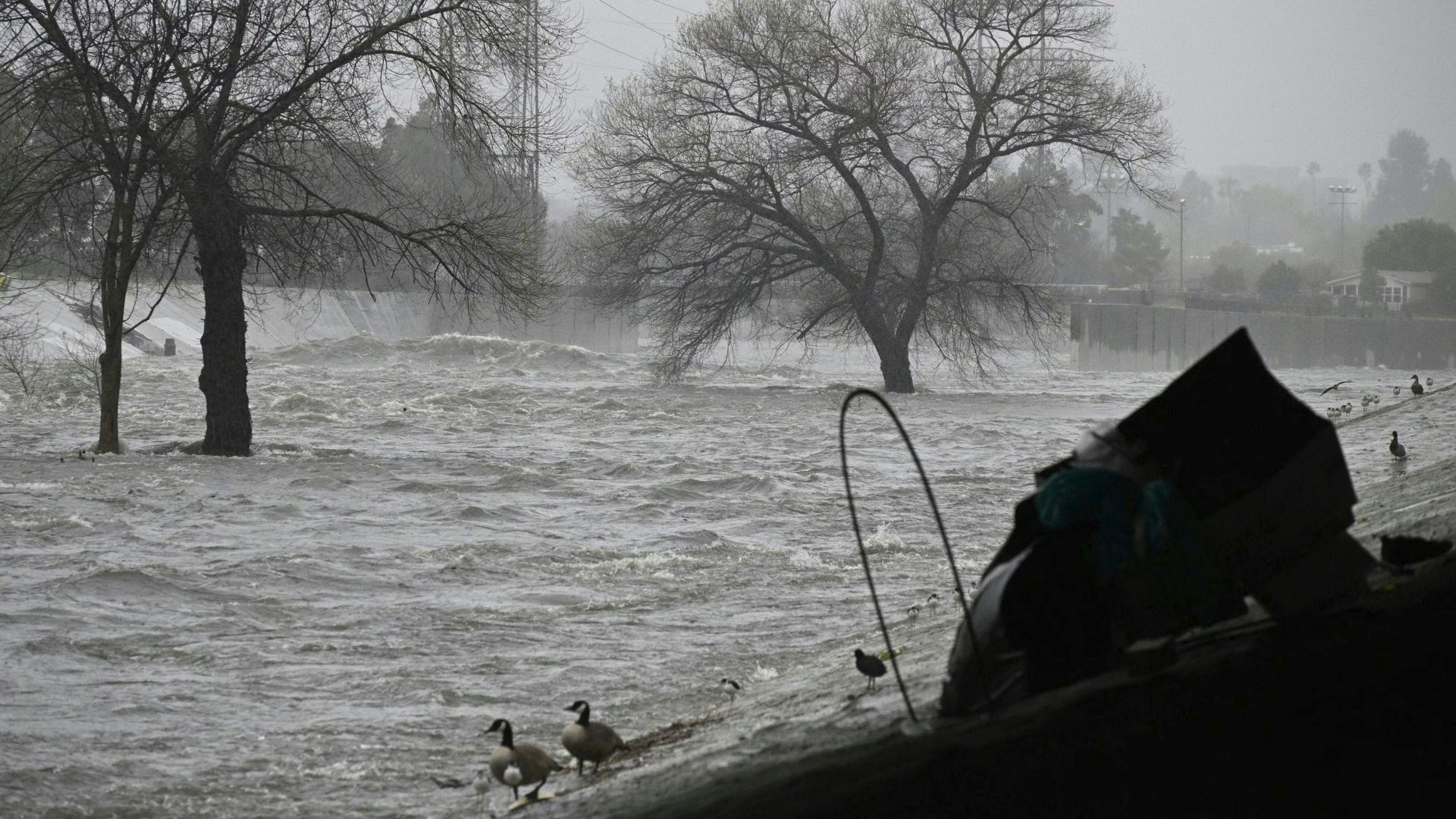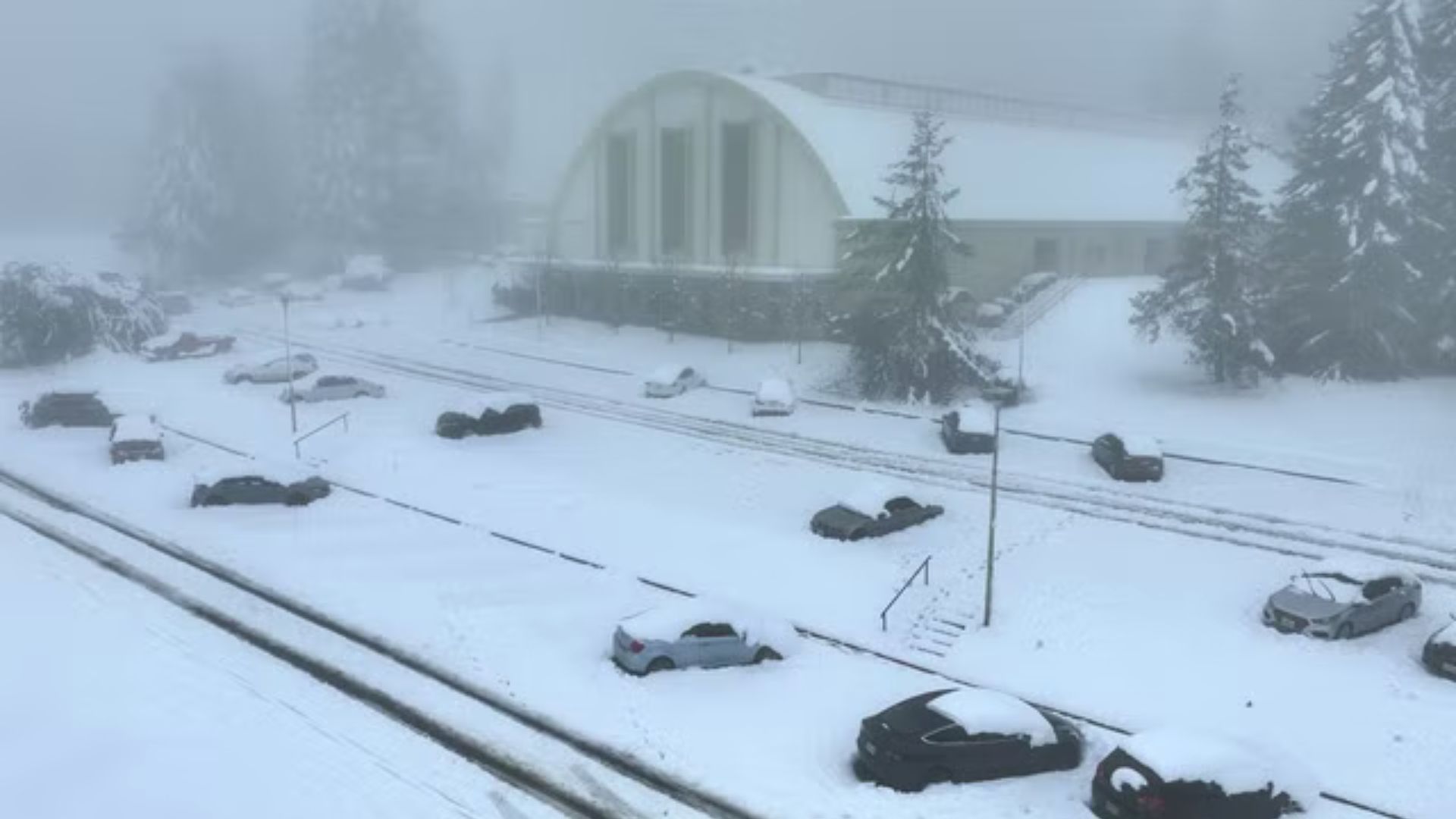Los Angeles - Severe storms continue to batter parts of California, leaving nearly 85,000 households and businesses without power in the Los Angeles area on Saturday. The storms have brought snow to higher elevations and dumped rain and hail in the flatlands, causing major travel disruptions.
The largest highway leading north out of the city, Interstate 5, remains closed due to heavy snow, while several more southern points of the freeway in and around Los Angeles are closed due to flooding, according to the California Department of Transportation.
The recent storms were caused by an atmospheric river, a weather phenomenon that originates in the Pacific Ocean and moves towards the west coast of North America. These storms brought heavy rain and snow to the state, causing widespread damage and disruption. In the mountains, heavy snowfall led to road closures and power outages, while in other areas, heavy rainfall caused flooding and mudslides.

Water rushes down the Los Angeles River channel near Griffith Park – Image/Getty images
In Northern California, San Francisco is expected to experience record cold temperatures, and the National Weather Service has warned residents of the state capital, Sacramento, to avoid travel from Sunday through Wednesday due to rain and snow expected to start up again. A massive low-pressure system driven from the Arctic is responsible for the unusual conditions, said Bryan Jackson, a forecaster at the NWS Weather Prediction Center in College Park, Maryland.
The next set of storms, expected to hit on Sunday, will bring wind gusts of up to 50 miles per hour in the Sacramento Valley and up to 70 miles per hour in the nearby Sierra Nevada mountains. Yosemite National Park has been closed through Wednesday due to severe winter conditions.

Cars are seen covered in snow at Pacific Union College in Angwin, California - Getty Images
The recent storms are a rare case of a cold, significant storm event in Southern California, according to Jackson. Even before the latest storm, much of California had experienced an unusually rainy, chilly winter, starting with a spate of deadly "atmospheric river" storms that unleashed widespread flooding, felled trees, and triggered mudslides in a state long plagued by drought and wildfires.
As the storms continue to ravage the state, residents are urged to take caution and follow any instructions or advisories from local authorities to ensure their safety.